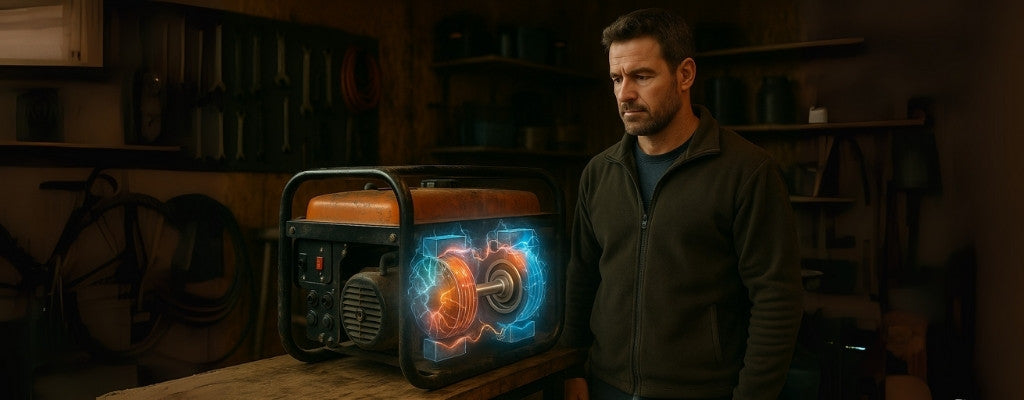
Do Generators Get Weaker Over Time?
Ever feel like your generator just isn't packing the same punch it used to? You're not imagining things — but it's not old age or magnet decay to blame. Short answer: no, generators don’t naturally get weaker with time — but maintenance slip-ups, environmental wear, or internal issues can chip away at their performance. Keep reading and you’ll learn what really causes a generator to drop power, and how to stop it from happening in the first place.

How and Why Your Generator Loses Power
Why Your Generator Keeps Losing Magnetism
Understanding the Loss of Residual Magnetism
Every generator relies on something called residual magnetism. It’s the leftover magnetic field that kickstarts voltage production when the generator turns on. But if that field fades — usually from sitting idle too long, being stored improperly, or being run without a load — the generator might struggle to produce power.
Think of it like jump-starting a car. No spark, no action.
How to Restore Residual Magnetism in a Generator
Lost magnetism doesn’t mean the end of the line. A quick and easy trick known as 'flashing the field' can restore the magnetic charge. Using a 12V battery and a set of jumper leads, you briefly send current through the field windings.
Important tip: follow your generator’s manual closely or ask a sparkie. Done wrong, this can fry components.

How Often Do Generators Get Weaker Over Time?
How Fast Do Generators Get Weaker Over Time?
Here’s the good news: the permanent magnets in modern generators, especially neodymium ones, lose less than 0.01% of their strength per year. That’s so tiny it would take centuries to matter. In real-world terms, magnets aren't your issue.
What does fade? Electrical components wear out, lubricants break down, and heat takes its toll on plastic connectors and seals. Think mechanical wear, not magnetic decay.
The Critical Role of Regular Maintenance for Your Generator
Skip your maintenance schedule and it’ll catch up to you. Clogged filters, low oil, or loose connections all stack up. A well-maintained generator in the outback can easily outperform a neglected one sitting in a city garage.
Regular servicing is cheaper than replacing a fried inverter or worn engine bearings. It’s the long-game play that pays off.

Common Causes and Solutions for a Weak Generator
Engine Problems and Their Impact on Your Generator
Clogged Air Filters and Their Impact on Generator Performance
Ever tried running a marathon while breathing through a sock? That’s what your generator does with a dirty air filter. Dust, leaves, and moisture build up fast — especially in Aussie bush or beach settings.
Swap out or clean filters every 100 hours or sooner in rough conditions. It’s a simple fix that prevents major headaches.
The Role of Spark Plugs in Generator Performance
Spark plugs don’t last forever. Over time, they get fouled with carbon, leading to rough starts, misfires, and reduced power output. If your generator is coughing or struggling under load, it might be time for a new plug.
Most plugs cost under $10 — and they’re worth every cent.

Electrical Issues That Weaken a Generator
Understanding the Automatic Voltage Regulator (AVR)
The AVR is the unsung hero of power quality. It controls the output voltage, ensuring your appliances get steady, usable power. If it starts to fail, you might see flickering lights, surging equipment, or even a complete power drop.
Heat, age, or surges from large appliances can wear it down. Replacing an AVR is often cheaper than repairing what it damages.




